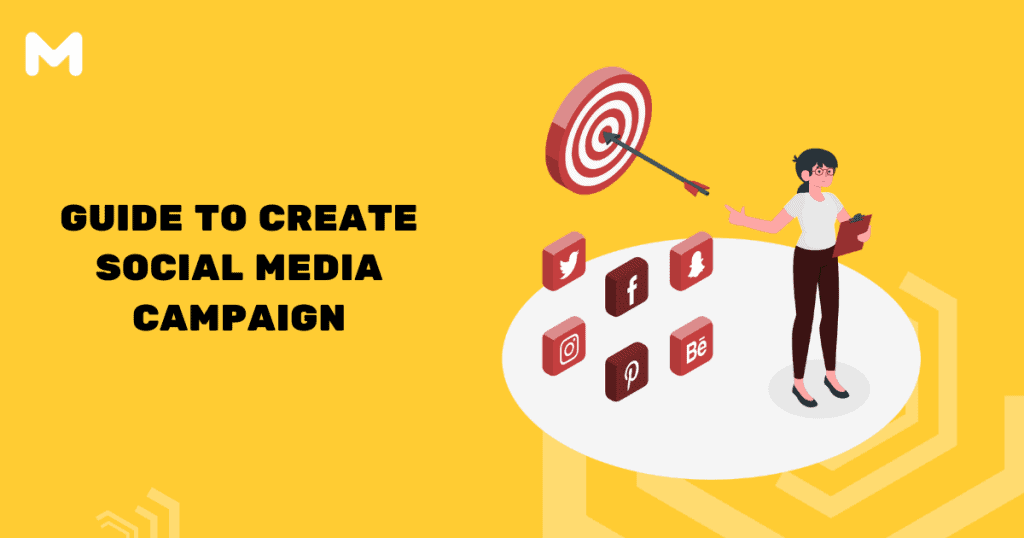A social media campaign is a coordinated marketing effort that reinforces or promotes a product, service, or brand through multiple social media channels. Creating a social media campaign can be an excellent way to take your marketing efforts to the next level. By using multiple social media channels, you can reach a larger audience and achieve your marketing objectives. In this blog post, we will provide you with a guide on how to create a successful social media campaign. We will cover topics such as identifying your target audience, setting objectives, creating content, and promoting your campaign. We will also provide tips on how to measure the success of your campaign.
What Is A Social Media Campaign?
Social media campaigns are an important part of online marketing. They allow businesses of all sizes to reach a wide audience, and they can help to build brand awareness and create customer relationships. A successful social media campaign requires careful planning and execution, but with the right tools and strategies, it’s possible to achieve your goals. Here are some tips for launching a successful social media campaign: When planning a social media campaign, it’s crucial to define your objectives and identify your target audience to tailor your message effectively. Additionally, choosing the right platforms that align with your business goals and maintaining a consistent posting schedule can significantly boost engagement. By analyzing metrics and adjusting your strategy as needed, you can ensure your campaign stays on track and delivers the desired results.
1. Define your goals. Before you begin any marketing campaign, you need to know what you want to achieve. What do you want your customers or followers to think or say about your business? What do you want them to do? Once you have a clear understanding of your objectives, it’s easier to determine which platforms will be most effective for reaching those goals.
2. Choose the right platform(s). Social media is available on a variety of platforms, from desktop browsers to mobile apps. Which platform should you use? That depends on the goal of your campaign – if your objective is simply awareness building, then using just one platform might be enough. If however, you plan on driving traffic or converting leads into customers, then using multiple platforms will be essential (including both online and offline channels). It’s also important to consider how long the campaign will last – if it’s short-term (e.g., a promotional event), then using just one platform might be sufficient; if however, the goal is longer term (e.g., increased brand visibility), then using multiple platforms may be more effective in reaching that goal.
Why Should You Create A Social Media Campaign?
There are many reasons why you should create a social media campaign. By focusing your resources on a specific goal or target audience, you can ensure that your efforts are focused and directed. Additionally, building an engaged community around your product or service can help to promote word-of-mouth advertising and generate leads for future sales efforts.
A well-executed social media campaign can also generate a lot of valuable traffic and exposure for your business. This is because social media platforms are highly influential in the modern world, and they have a large reach. Additionally, social media campaigns can be used to market products or services to a wider audience than ever before possible.
Creating a social media campaign is an investment in your business. However, it is one that can pay off big time if done correctly. By understanding the different benefits of a successful social media campaign, you can make the most of your time and resources and achieve your desired outcome. Here are some of the key benefits of using social media for business:
1. Focused Efforts: When you create a social media campaign for your business, you are limiting your efforts to a specific target audience or goal. This allows you to ensure that all of your energy and resources are focused on achieving success.
2. Word-of-Mouth Advertising: A well-executed social media campaign can generate a lot of word-of-mouth advertising for your product or service. This is because people will talk about what they have seen online and recommend it to others. In fact, studies show that word-of-mouth marketing is one of the most effective forms of advertising available today!
3. Increased Exposure: Social media platforms are highly influential in the modern world, which means that they have a large reach. Additionally, social media campaigns can be used to market products or services to a wider audience than ever before possible. This increased exposure can result in more customers coming into contact with your business and ultimately buying from you!
4. Generating Leads for Future Sales Efforts: A well executed social media campaign can generate leads for future sales efforts by building an engaged community around your product or service. As mentioned earlier, this community interaction results in word-of mouth marketing which generates leads for future sales efforts!
How To Create A Successful Social Media Campaign
There are a lot of different factors to consider when planning a social media campaign. One important factor is goal. What are you trying to achieve with your campaign? Are you looking to increase brand awareness, generate leads, or drive sales? Once you know your goals, it’s important to research similar campaigns that have been successful in achieving these objectives. Once you have a good understanding of what works and doesn’t work for other brands, it’s time to put together your plan.
One of the most important aspects of any social media campaign is the call to action (CTA). Make sure that your CTA is clear and easy for visitors to understand. Additionally, make sure that your visuals are strong and engage viewers. Keep your content short and sweet so that people don’t lose interest quickly. And finally, choose the right platform – Facebook, Twitter, Instagram etc.– based on the audience that you’re targeting and the type of content that you want to share.
When planning your campaign, it’s important to consider the demographics of your audience. For example, if you’re targeting parents who are interested in raising their children ethically and environmentally responsible, then your content should reflect that. Similarly, if you’re selling a product or service, make sure that the visual branding is consistent with the tone of your content. For example, if you’re promoting a green product, use images and messaging that reflect that.
Once you have a good understanding of what works and doesn’t work for other brands and have determined the demographics of your audience, it’s time to put together your plan. One popular approach is to create a social media schedule with specific goals in mind. For example, start by creating weekly or daily quotas for brand awareness, engagement rate (likes + retweets), etcetera. This will help keep everything on track and ensure that each post achieves its objectives. Additionally, using ROI analytics can help measure the success of each post so that you can adjust accordingly.
Finally, don’t forget about employ Social Media Monitoring! By monitoring social media posts from employees it can be easy to identify trends and issues before they become public knowledge (and potentially embarrassing). In this way employee morale is not harmed nor is company information leaked unnecessarily.
Who Is Your Target Audience?
Understanding your target audience is important for any social media campaign. Why? Because not only will this help you to connect with and reach your target audience, but it can also help to ensure that your social media campaign is successful.
There are a few things that you need to keep in mind when understanding your target audience. First, it’s important to know what interests and concerns your target audience has. For example, if you’re launching a new product, it’s likely that you’ll want to focus on the needs of your target market. Second, it’s important to understand who comprises your target market. This means determining which groups (e.g., age, gender, etc.) are most likely to be interested in what you have to offer. Finally, research is essential for any social media campaign – without proper research, it will be difficult to create effective content or targeting strategies for your campaign.
Once you’ve determined your target audience, it’s time to create content that is relevant and engaging. Content should be tailored to the interests and concerns of your target market, while also being entertaining or informative. You can also use social media platforms to reach out directly to your target audience with targeted ads or content updates. By understanding who your target audience is, and creating content and marketing strategies that are specifically tailored to them, you can guarantee a successful social media campaign.
What Objectives Should You Set For Your Campaign?
When it comes to creating social media campaigns, there are a few things that you should keep in mind. First and foremost, social media campaigns can be a great way to reach out to potential customers and get your message across. Secondly, you should determine what objectives you want to achieve with your campaign. Some possible objectives for social media campaigns include increasing brand awareness, generating leads, or promoting special offers or discounts. Once you have determined your objectives, you can then create content and messages that are designed to achieve those objectives. Finally, you will need to measure the success of your campaign by tracking metrics such as engagement or website traffic.
When designing a social media campaign, it is important to determine what objectives you want to achieve. Some possible objectives for social media campaigns include increasing brand awareness, generating leads, or promoting special offers or discounts. Once you have determined your objectives, you can then create content and messages that are designed to achieve those objectives. It is also important to measure the success of your campaign by tracking metrics such as engagement or website traffic. By following these tips, you can ensure that your social media campaign is successful and results in the desired outcomes.
What Types Of Content Will Work Best For Your Campaign?
When planning a marketing campaign, it’s important to ensure that the content you create is something your target audience will value. If you’re not sure what kind of content to produce, start by surveying your target audience or doing some market research. Once you have an idea of the type of content that will work best for your campaign, it’s easy to start creating it!
For example, if you’re planning a marketing campaign focused on increasing brand awareness, you might consider producing content that discusses the history and current state of your company. Or, if you’re working on a marketing campaign aimed at selling products online, you might produce articles or videos about how to use those products in specific situations. Whatever the goal of your campaign may be, make sure that the content you produce is valuable and relevant to your target audience.
Creating valuable and relevant content is key to any successful marketing campaign. By focusing on providing useful information and advice to your target audience, you’ll be able to create a successful presence online and reach new customers!
Where Will You Promote Your Campaign?
When promoting your campaign, it is important to choose the right social media platforms. Facebook is the most popular platform in the world, with more than 2 billion active users. Instagram is also a popular platform, with over 1 billion active users. Twitter has around 330 million active users. These three platforms are all important when it comes to marketing your campaign, and you should consider using each of them in different ways.
Facebook is the king of online advertising, and it’s still one of the best places to promote your campaign. This is because Facebook has a large pool of potential customers (2 billion+) who are already engaged with Facebook content and advertising. Additionally, Facebook ads are very effective at reaching target demographics (age, location, etc.).
Instagram is great for promoting campaigns that have a visual component (images or videos). This is because Instagram allows you to share high-quality images quickly and easily. Additionally, Instagram can be used to generate buzz about your campaign before it even launches (by sharing sneak peeks or early releases).
Twitter can be used as a way to extend your reach beyond just Facebook and Instagram. For example, if you’re targeting businesses rather than individuals, Twitter might be a better option for you than either Facebook or Instagram. Twitter also offers some unique advantages when it comes to marketing campaigns – such as being able to track engagement data very closely (via “likes” and retweets).
How Can You Measure The Success Of Your Campaign?
One of the key measures you can use to determine the success of your campaign is whether or not it is reaching its target audience. This can be determined by checking your website’s analytics, as well as through surveys and interviews with your target market.
It is also important to test different strategies in order to see which works best for your campaign. For example, you might want to try a different ad format or intensify your social media efforts. You can then analyze the results and make necessary adjustments to keep your campaign on track.
Another key measure of success for any marketing campaign is ROI (return on investment). This can be determined by measuring things such as clicks on ads, number of leads generated, and sales generated. It is also important to track changes over time in order to ensure that you are getting the most out of your campaigns.
It is important to keep track of all the different metrics mentioned above in order to ensure that your campaigns are successful. However, sometimes it can be difficult to determine whether or not a campaign has been successful just by looking at these numbers.
One way to evaluate the success of your campaign is through qualitative measures. This includes things such as customer satisfaction surveys and interviews with customers about their experiences with your product or service.
Another way to measure the success of a marketing campaign is through its impact on society. This can be determined by examining issues that were raised during your campaign’s launch, such as societal attitudes towards your product or service.
To Wrap Up
When done correctly, social media campaigns can be an excellent way to take your marketing efforts to the next level. By clearly defining your goals, choosing the right platform, and creating engaging content, you can reach a larger audience and achieve your desired outcome. Use the tips and information in this blog post to create a successful social media campaign for your business!


